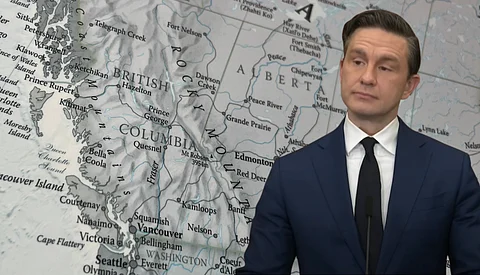

Conservative Leader Pierre Poilievre said he would avoid making major changes to the federal equalization program if he becomes prime minister, as the system does not require a major overhaul.
In a Radio-Canada interview on Wednesday, Poilievre said he does not foresee "big changes" to the program, which aims to ensure provinces can offer roughly equal public services.
The program was introduced decades ago and sends federal funds to provinces based on their ability to raise revenues.
"I don't anticipate big changes," Poilievre told host Karine Godin in French.
"We don't want to cut transfers to people and provinces. We want to cut the bureaucracy in Ottawa. That's where the waste is found."
Poilievre accused the Trudeau government of increasing the federal deficit by hiring an additional 110,000 public workers since 2015.
Government figures show the public service grew from 257,034 employees in 2015 to 367,772 in 2024.
Equalization payments are currently locked in until 2029 under a formula renewed every five years.
Critics note that a future government could change the program before that date.
Poilievre has sidestepped questions on the issue in the past, saying Canadians will have to wait for the Conservative platform to see his full plans.
Several premiers have long taken issue with equalization.
Alberta, British Columbia, and Saskatchewan do not receive any of these transfers, and their leaders have called the system unfair.
Saskatchewan Premier Scott Moe posted this month on Twitter/X that his province, Alberta, and British Columbia once again would "help support the rest of Canada."
Alberta Premier Danielle Smith echoed Moe's comments, tweeting that the current formula "isn't fair or sustainable."
Smith's government is preparing a policy paper on equalization after a 2021 referendum when nearly 62% of Albertans voted to remove equalization from the Constitution.
Meanwhile, B.C. Premier David Eby recently said his government supports Newfoundland and Labrador's court challenge over federal payments.
The Newfoundland and Labrador lawsuit argues that the province is being unfairly excluded from potentially billions of dollars over the long term.
Although equalization has gone through minor changes over the decades, the last major revision occurred after the 2008 financial crisis, when Ontario began qualifying for payments.
Since then, reforms have remained limited, though some premiers continue to ask for a major overhaul of the equalization system.
